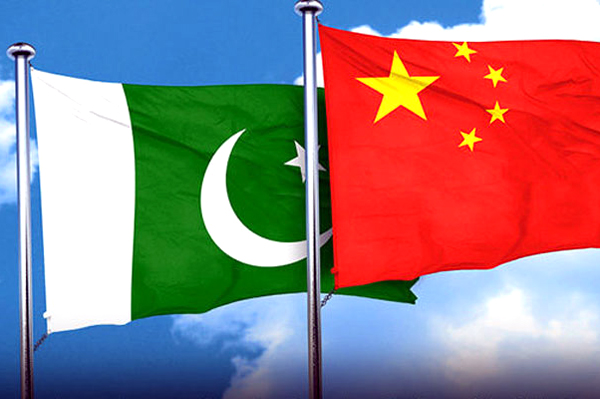Pakistan-China automobile industry collaboration to bring in joint benefits
Chief Represent of Pakistan Shenglin Consulting Co., Ltd. (PSC), Jiang Peng (Philip) has said that Pakistan has a tremendous advantage for having a favorable environment to attract investment, especially for the automobile industry. He also said that for China, Pakistan is a window to the rest of the world and will serve as a bridge and link for Chinese products. He also said that Pakistan’s automobile industry is about to take off with increased demand, and joint collaboration will usher in a new blowout period.
ISLAMABAD, Aug.20(Gwadar Pro) – As far as China’s surrounding markets are concerned, Pakistan has a huge advantage over many other markets in terms of investment environment and political stability. Chinese automobile enterprises should proceed from the perspective of industrial layout rather than product sales, with spare parts industry clusters, and aim at the surrounding and even European and American markets through cooperation with Pakistan.
The above views were expressed by Mr. Jian Peng (Philip), Chief Represent of Pakistan Shenglin Consulting Co., Ltd. (PSC) who has been working in the Automobile industry for over 20 years and communicating the feasibility of investment and production capability transfer to Pakistan. He believes that Pakistan is a window for China to the world, and it is also a bridge and link for Chinese products and technologies to connect to the world.
Right time to invest in the automobile industry
The development of the automobile industry is a manifestation of a country’s comprehensive national strength and an important indicator of a country’s economy. As a leading industry driving the national economy, the upstream of this huge industrial chain involves raw materials, including steel, oil, rubber, etc., while the middle stream touches on processing and manufacturing, machinery and equipment, peripheral supporting industries, and downstream reaches the market, retail, and consumer finance. Philip said that the whole production and marketing process of a vehicle can provide the employment to at least 20-30 people.
“The current situation of Pakistan’s automobile industry is very similar to that of China in the early 1990s, and its consumer market is about to take off.” Philip highlighted that “the Pakistani government is also aware of the necessity to increase investment in the automobile industry, from strengthening road infrastructure construction to investment policies in special economic zones, as well as measures to encourage and stimulate consumption. We can all see that the automobile industry is about to usher in a ‘blowout’ period in Pakistan.”
Currently, the biggest difference between Pakistani and Chinese vehicles is that Pakistan has the right-rudder vehicle market, so many Chinese auto companies are not ready to fully enter the Pakistani market. “Nevertheless, if the cooperation between the China and Pakistani automobile industry faces the international consumer market, and Chinese companies can transplant the European and American standards they have learned to Pakistan, cars assembled in Pakistan can expand the left-rudder car market.” Mr. Philip explained.
Undertaking the mission of assisting Pakistan in the rapid establishment of the spare parts industry
The entry of the Chinese automobile into Pakistan undertakes the mission of assisting Pakistan in quickly establishing a matching industry of spare parts and quickly realizing the localization of spare parts. From the perspective of the orientation of Chinese investment in Pakistan, the investment in the whole industrial chain in Pakistan, rather than simply CKD, is an important opportunity for cooperation between the two countries in the future. Mr. Philip underlined that China’s technology and equipment output and production capacity transfer can quickly pull Pakistan’s basic workpiece supporting capacity. Once Pakistan has formed the relevant supporting capacity of the automobile, the manufacturing and maintenance costs will be greatly reduced.
The cooperation between China and Pakistan in the automobile industry is mainly dominated by fuel vehicles at present. As a future trend, new energy vehicles have attracted widespread attention, but they are still in the trial period of the market, which needs further observation. “Pakistan’s entry into the field of self-driving can first be considered from some specific application scenarios and site environments, such as the automatic loading and unloading of ports and terminals, taking the lead in realizing the relative safety and stability of self-driving in engineering infrastructure, which can also effectively save labor resources.” Mr. Philip further introduced that it can be regarded as a scientific research project. Pakistani R&D institutions, universities, scientific research institutes, and supporting suppliers can strengthen cooperation with China to seek technological landings and breakthroughs.
“Step-by-step” strategy to reduce logistics costs
It is learned that PSC is planning to set up a China-Pakistan Commodity Trading Center in Hainan and a China-Pakistan Bonded Processing Park in the Urumqi Free Trade Zone. Hainan is the largest free trade zone in China, and it is at the forefront of opening up, especially in the aspects of free flow of capital and free settlement of trade, which plays a positive role in commodity trading. According to Mr. Philip, in addition to tangible consumer goods and complete sets of equipment for capacity transfer and capacity output, traded commodities also include intangible goods such as technology, intellectual property rights, and standardization, to facilitate more convenient and efficient cooperation between enterprises of China and Pakistan.
Xinjiang is the core node of the Belt and Road Initiative and the only province of the land border between Pakistan and China. With the construction of the China-Pakistan railway and the expansion of the Karakoram Highway, Mr. Philip believes that the capacity of land transport will be greatly increased soon which can bring opportunities for the export and processing industries of both countries. “Chinese companies can migrate their CKD assemblies from coastal areas to Xinjiang, package them for export to Pakistan, and complete the final vehicle assembly in Pakistan, realizing the ‘step-by-step’ strategy, which will greatly reduce the logistics cost of the product.”
Chinese envoy Zhao Shiren urges students to uphold integrity and strengthen China-Pakistan ties
LAHORE:The Consul Generals from several countries and other distinguished guests attended …











